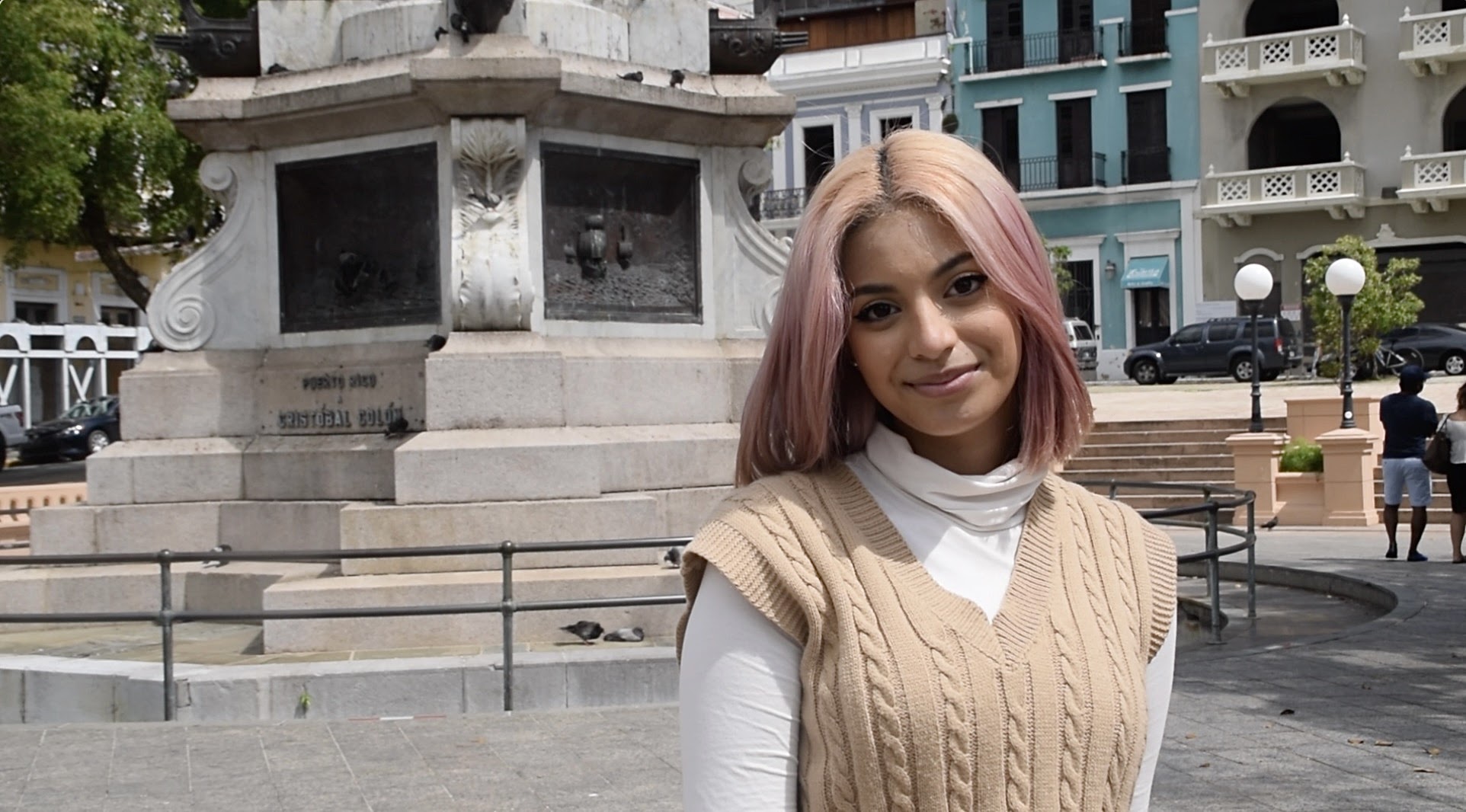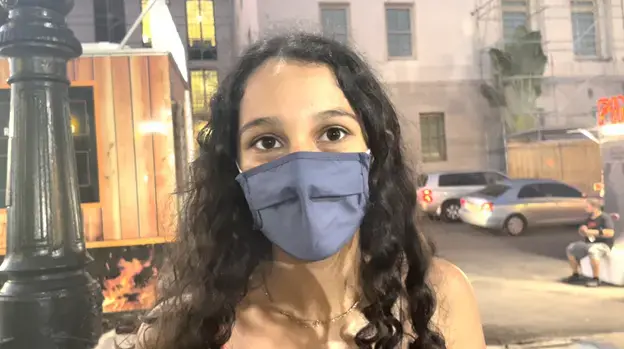Puerto Rico was just beginning its shutdown because of the coronavirus pandemic when the life of former college student Jaffette Rolon suddenly changed. He found himself unemployed.
"I was out of work for three to four months. I eventually had to leave school to be able to pay my bills in order to survive,” said Rolon in an interview.
"At the beginning of the pandemic, I had to move back to my parents’ house who live an hour away…There were too many family members in one space without peace and quiet or a stable internet connection. I had to drop out." he said.
When Puerto Rico began shutting down because of the pandemic, university students like Rolon struggled to adapt to virtual school. In 2019, public and private school enrollment in Puerto Rico had already dropped 44 percent since 2006, leading to the closure of 265 schools. Hurricane Maria, earthquakes, and political instability had already hit the region hard.
In August 2018, the government of Puerto Rico reported more than 1,400 deaths in the aftermath of category 5 Hurricane Maria that ravaged the island in the fall of 2017. A string of earthquakes hit Puerto Rico beginning in December 2019. That included a magnitude 6.4 earthquake that struck the island on January 7, 2020, causing extensive damageand widespread power failures. Then, in 2020, the pandemic threatened an increased dropout rate on the island.
With pandemic shutdowns pending, professors scurried to adjust their curriculum to an online environment. “[We] had a week to adapt to class online," said Aurora Santiago Ortiz, a professor at the University of Puerto Rico, who wrote her dissertation on dismantling the education system. As stated on her website, she “explored how students and community partners negotiate their collaborative relationship, produce non-Eurocentric forms of knowledge, and resist neoliberal austerity measures that threaten Puerto Rico's public university and overall socioeconomic well-being.”
Students expressed concerns as well. “It’s like I'm basically teaching myself, like I’m studying on my own. We don't have the teachers there to explain stuff to us and most of the professors are not aware that we also have problems," said University of Puerto Rico student Fatima Garcia.
Other students expressed similar disappointments: “I had expectations when I was in high school that I would get a university experience, to be there in class and hang out on weekends. But that was completely taken from me, and it’s all online. You don’t feel connected to the professors or the students. It’s not the same,” said Genesis Santiago, a student at University de Puerto Rico, Mayagüez.
Students faced a host of issues ranging from unstable internet connections to lack of access to electronics.
"Since there are places where there was no connection to wifi or telephone, many students felt their future could be interrupted as their classes could not be completed,'' said Julio Santana Mariño, provost of Albizu University, Mayagüez campus in San Juan.
Compared to the U.S. states, in 2019, Puerto Rico ranked as one of the highest numbers of households without internet subscriptions (third to only New Mexico and Mississippi).
According to the Center for Puerto Rican Studies, 65 percent of school closures have occurred in rural areas as opposed to 35 percent in urban areas.
"The internet connectivity is not the same in San Juan as it is in Morovis, which is an area of mountains,” said Provost Mariño.
The solution is to "improve wireless communication in the entire town; especially in the mountains. Communication in the mountains is not as good as in the bigger cities that have more infrastructure,” said Pedro Resto, a professor at the Industrial Engineering Department at the University of Puerto Rico, Mayagüez campus.
Lack of stable internet can lead to missed assignments, leading to lower grades.
University student Fatima Garcia has encountered issues with completing her assignments after repeated misunderstandings caused by internet connectivity issues. "The electricity in the house goes out, and they don't understand it, and they get annoyed and sometimes we miss out on work for reasons that are out of our control," she said.
According to the Puerto Rico Youth Institute, around a quarter of the island's children don't have internet access, and 56 percent don't have a computer.
Milady Hernandez Torrez, a waitress and student at the University of Puerto Rico, doesn't have WI-FI at home. "I would use WI-FI from another building and that would often give me problems. I even had to take my classes on my phone for a while and that's really uncomfortable."
It's essential to have a computer when you are learning virtually. "We're doing everything on our computer," Torrez added, "taking the class on our computer, reading on our computer and doing our work on the computer. Sometimes I just want to throw the computer off the balcony!"
To gauge how many students in his university were without computers, Provost Mariño sent out a questionnaire to his students to assess computer needs. They then supplied those students with computers from their laboratories.
"Professors are also getting funding to purchase electronics for some students to take home materials," said Professor Resto of the University of Puerto Rico Mayagüez campus.
Although supplies are being provided for some, many faculty members believe classes must be in person in order for students to stay motivated. "They need interaction. Not all teachers and students are self-motivated," said Executive Director Lugo.
Jeyleen Pagan Vazquez, a student at Atlanta University College in Puerto Rico, said that the connection between her and her professors is strained due to lack of training for online instruction. "I have a teacher who teaches by showing us videos that a different teacher makes for his class... it's hard for me to get that individual instruction and really learn the topic,” she said.
As students like Vazquez have struggled, teachers find flexibility essential to keep students enrolled and engaged in school.
"We reacted with flexibility; we established measures so that students who could not complete a course could complete them the following semester. We chose not to fail students but instead create remedial plans. For a year, we have maintained a policy of flexibility so that students do not have to abandon classes,” said Mariño, provost at Albizu University.
Along with more stable WIFI connectivity, access to materials needed to study, and online learning preparedness, many believe the solution lies in remediation.
"I think the education system needs to optimize their resources and educate teachers to the new teaching methodologies. The system should change into a trimester and be more adaptive in the remediation process and to remediate based on subject matter deficiencies," said Ivan Lugo, executive director at Industry-University Research Center.
"Are we willing to lower our standards? I don't think so. There's a need for greater knowledge, skills and competencies and we cannot lower our standards, so we need to really fix the system to be able to help these kids," Lugo added.
Students have felt negative mental health effects caused by a history of natural disasters on the island. “Then when the pandemic happened, the uncertainty of how our lives were transformed and impacted was definitely a stressor - especially when you’re trying to like - plan ahead for the future and you don’t know what the future is holding, '' said Torrez.
Dr. Rahn Kennedy Bailey, a leading, 30-year psychiatrist on the John Bricker endowed chair of the Department of Psychiatry and assistant dean of Diversity and Community Engagement at LSU-New Orleans explained how psychiatrists struggle to predict the long-range ramification on individuals who have experienced trauma. Still, they can recognize the consequences of pre-existing stressors on mental health.
“We are very good at recognizing that across the board that many persons who have pre- existing stressors, trauma or vulnerability are likely to be at a higher risk of long range adverse negative consequences,” he said in an interview.
Young students in Puerto Rico have been subject to multiple natural disasters and a pandemic. They are dealing with pre-existing stressors elevating their risk for long-term negative impact on their mental health.
Before Jaffette Rolon lost his job and had to drop out of school to move back with his parents, he was studying as a theater student. Theater assignments and lessons required him to be around others, practicing scenes in person and speaking loudly when playing different characters. "If I don't have a space where I can speak loudly, that makes completing my work very hard."
Not all lessons have adapted to being taught online, and students like Rolon are struggling. In an interview, Rolon said the effect that natural disasters and the pandemic have had on Puerto Rico will impact the future in a big way.
"Things that used to move quickly are moving at a much slower pace now. In my case, I was going to graduate from university when the pandemic began but I have had to put it on pause for a year and a half. I couldn't concentrate when I was studying online. It was harder to learn. And it was not easy for me."
Rolon, like most American students, is eager to go back to university and pleads for change.













